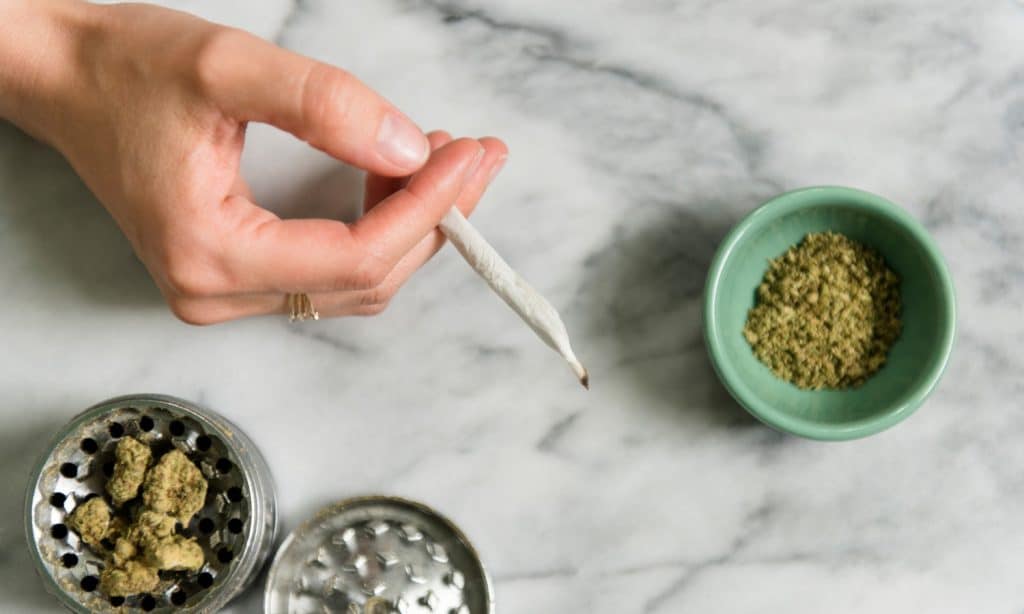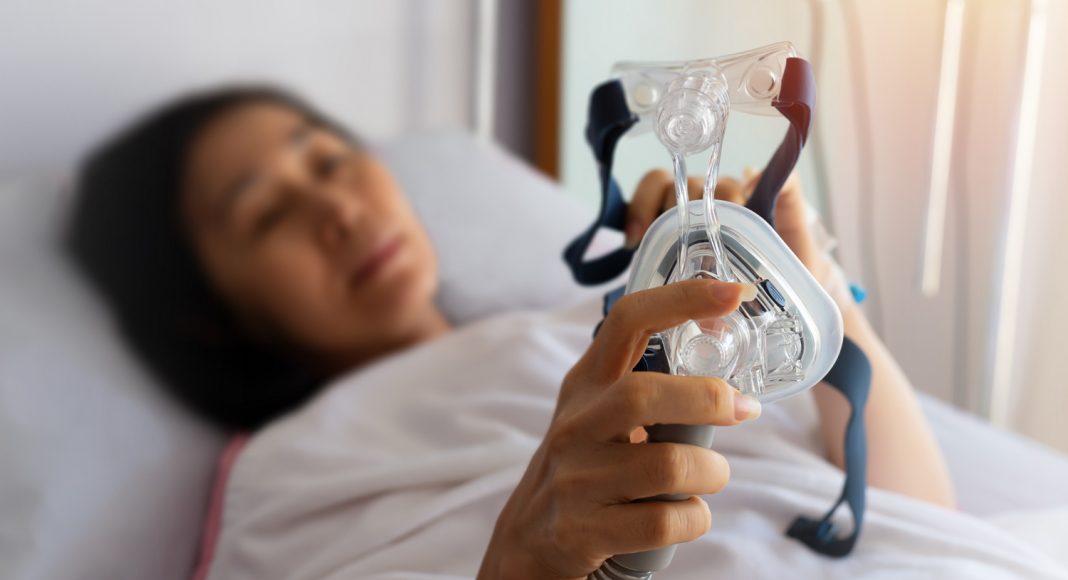States have green-lit obstructive sleep apnea as a medical marijuana issue, but many doctors are hesitant to push cannabis because the CPAP machine is still held as the gold standard.
Sleep apnea is a common-ish disorder that shatters restful sleep with interruptions in breathing that can last anywhere from seconds to even minutes. Severe cases might present up to thirty such disruptions per minute, making true rest nearly impossible.
While treatment options such as surgery and medication exist, a less drastic but far more awkward option is continuous positive airway pressure (or CPAP), which is provided by a plastic ventilation tube attached to a face mask at one end and an air pump on the other. It’s not the easiest thing to wear when trying to fall asleep.

Can THC and CBD help?
So, the question is, does marijuana and the positive effects of CBD have a role in assisting with sleep apnea? With states green-lighting obstructive sleep apnea as an issue for medical marijuana, it appears so, but many doctors are hesitant to push cannabis, as the CPAP machine is still held as the gold standard.
RELATED: How Using Marijuana Can Effect Your Sleep Patterns
In fact, according to a 2015 research review, cannabinoids certainly hold promise, but they just can’t replace the CPAP. Interestingly, many doctors find frustration in getting their patients to use the device, signaling that the CPAP device, while helpful, is seen as intrusive. After all, patients have to use the device to see its benefits and THC or CBD oil could help lessen anxiety around using the CPAP mask or getting good sleep in general.
So, where does that leave the debate on marijuana for sleep apnea? According to the Sleep Doctor, there just isn’t enough research available to make a pro or con decision. It’s best to discuss individual concerns with your care team and use your CPAP as prescribed.


